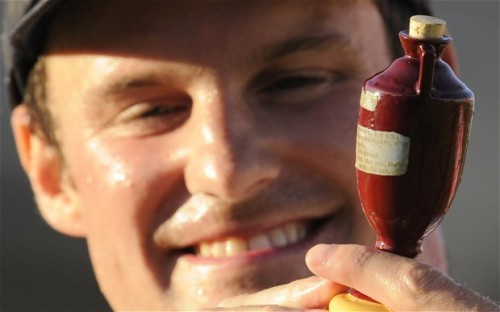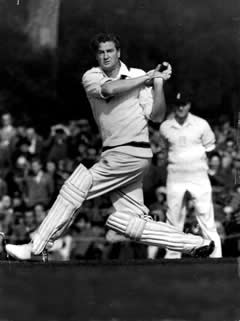Surrounded by packing cases, NORMAN GILLER pops his head up from behind the sofa after being subjected to more abuse for his top picks than Villas Boas

In my 55 years of scribbling for a living (yawn), I have rarely stirred up so much vitriol as greeted my roll call here last week of the 50 finest British sportswriters of my lifetime.
I thought I had made it clear that I was leaving the choice of the best of the latest breed of sports scribes to those more in tune with current deadlines and headlines. You can cast your vote in the Press Gazette poll.
Among the angry attacks made on me on Twitter and Facebook was that I had not included anybody under 40 on my list “… what an insult to today’s young sports journalists”.
I happen to think there is an army of talented young sports scribes out there, but longevity came into my thinking when assessing my top writers. Let’s see if the bright young things of today are shining brightly over the next decade or so.
In my brief but brilliant appearance on Des Kelly’s probing Press Pass programme on TalkSport I made the point that going back to the likes of JL Manning (who always had the Last Word in the Daily Mail) there has been a high bench mark for the standard of sports writing.
Randall Northam, once an ace athletics reporter and now a respected publisher and hon. treasurer of the SJA, argued that those Fleet Street legends Dennis Signy and Vic Railton should have been included in my list.
I countered by pointing out that this was a rating of the top 50 sports writers. If I had been compiling a list of the greatest news gatherers, Dennis and Vic along with the likes of Harry Harris and extraordinary investigative reporter Andrew Jennings would have featured prominently.
Steve Curry, who was my number two in the Daily Express football team, went on Facebook to complain that he “felt rejected.” If I didn’t make the top 50, Steve, why should you?
I told Steve that he was in good company with those who did not find a place in my list, including exceptional writers like Brough Scott, Henry Longhurst, Mike Langley, Matthew Engel, Oliver Holt, Arthur Hopcraft and so many others who charmed Fleet Street with their words.
I must make a list of things not to do in future.
Number 1: don’t make a list.
I APPLAUD ANDREW STRAUSS on his decision to get off while at the top of the mountain. One of the hardest things for veteran sports masters to do is get out at the right time. Few manage it.
Strauss leaves with dignity and with memories of mostly good times, apart from when KP was driving him nuts.
Strauss is sure to be joining a what is virtually an XI of former England Test captains in the press and commentary boxes.
One thing’s for sure, he is unlikely to spark the sort of furore when another ex-England cricket captain caused a Fleet Street war.
I was a copyboy on the late, lamented Evening News in London in 1956 when the newly knighted and newly retired Sir Len Hutton was signed to “write” on the Ashes series.
EM (Lyn) Wellings, a former Oxford Blue and Surrey off-spinner and the News cricket correspondent since the end of the war, went a purple-faced apoplectic when he heard of Hutton’s appointment. I just happened to be in “the sportswriters room” at Ludgate House when he was told that Hutton would be commenting at the Lord’s Test. “The fuck he will,” snapped Wellings.
To hear the “F” word falling from the lips of Wellings was as shocking to the ears as hearing your maiden aunt cussing. He was an extremely dignified and awfully posh man with a cut-glass accent, and who always wore either a cravat or an MCC tie.
Wellings was not revolting against Hutton becoming his unwelcome team mate so much as the fact that his copy would be ghost-written. This was a tinderbox issue throughout Fleet Street at the time, with the NUJ leading the fight against the employment of non-journalist sportswriters.

Using his influence as a distinguished founder member of the Cricket Writers’ Club, Wellings managed to get Hutton barred from the Lord’s Press Box.
The compromise was that three seats were made available alongside the covered, glass-fronted Press Box (this is, of course, long before the cucumber was installed). One seat was for Sir Len. One for his ghost, the esteemed Julian Holland (later the driving force of BBC’s News At One programme). And one for the copy telephonist – little me.
I was not allowed to use a Press Box telephone, and had to gallop downstairs to a public phone box every 20 minutes or at the fall of a wicket. If the phone was being used by one of the 20,000 spectators, I would then have to race outside the ground to another call box, with Hutton’s priceless thoughts on a sheet of paper in my hand.
After one dash, I returned breathlessly to my seat to find it occupied by an Evening News reporter on a day off. It was Leslie Thomas, who in his spare time was writing the book that was to earn him his fame and fortune: Virgin Soldiers. I have since often reminded him how he graciously allowed me to stand beside him while he sat on my chair.
BBC television was covering the match live, and when commentator Brian Johnston referred to the “Hutton barred” story, the cameras panned the Press Box and then showed Sir Len on the outside, giving his considered views to the typewriter-tapping Holland.
Wellings was tipped off that the cameras kept showing close ups of him and Hutton just yards apart. He waited his moment, and when the camera next started on a panning shot, he held up a foolscap pad on which he had written in large block capitals: BOLLOCKS.
I was a member of the NATSOPA union at the time, and got a rollocking from our FoC for being an innocent (I thought) co-conspirator in the ghosting of Hutton.
Many years later I was scripting a This Is Your Life tribute to Denis Compton, and went to Sir Len’s Surrey home to film a short piece. I reminded him of the Lord’s affair, and he told me: “Wellings and I never saw eye to eye. He was always critical of me because he did not think a professional should captain England.”
There is a hilarious/appalling punchline: Wellings (full name Evelyn Maitland Wellings) wrote for the Evening News for 36 years until it became unlovingly embraced by the Evening Standard in 1980. He received a letter about pension entitlements from the Associated Newspapers management that read: “Dear Mrs Wellings …” The same company sent Reg Gutteridge his gold watch for 40 years service in a brown paper envelope.
In that Lord’s Test of 1956, Keith Miller claimed 10 wickets to lift Australia to victory by 185 runs. Less than 10 years later Keith was my colleague on the Daily Express as a non-ghostwritten journalist.
He used to hold us enthralled at liquid lunches at the Cheshire Cheese and the Albion with tales from the dressing room. I asked him what the pressure was like when Jim Laker was skittling the Aussies at Old Trafford later in the ’56 series.
“What pressure?” said the former Royal Australian Air Force fighter pilot. “Pressure is when you’ve got a Messerschmitt up your arse.”
Keith would get into my top-50 world sportswriters, topped by the great Red Smith, just ahead of Ring Lardner and Damon Runyan … oops, nearly started writing another list.
A MOVING FOOTNOTE: I have now moved across the border from dozy delightful Dorset into ‘Appy ‘Ampshire for the last big adventure of my life. I have shifted into a dolls’ house a short distance from where John Arlott first started talking cricket. Now why didn’t I find room for him in my Top 50? He was The Master.
UPCOMING SJA EVENTS
Mon Sep 24: SJA Autumn Golf Day, Muswell Hill GC. Click here for booking details
Thu Dec 6: 2012 SJA British Sports Awards. An Olympic year extravaganza. Note the date in your diary now. Details to be announced soon.